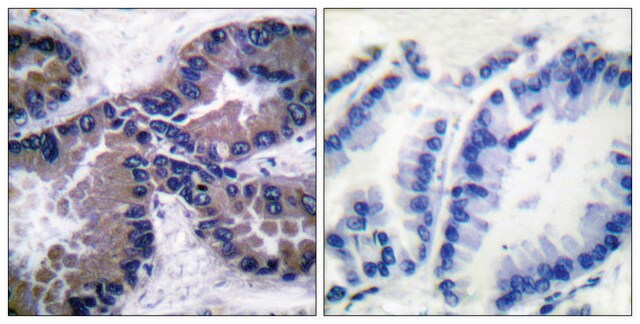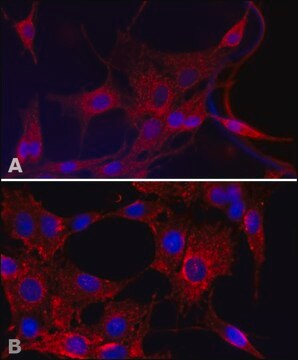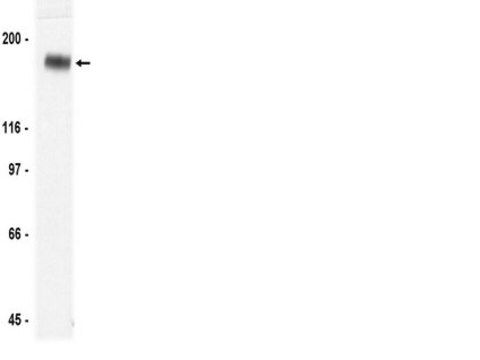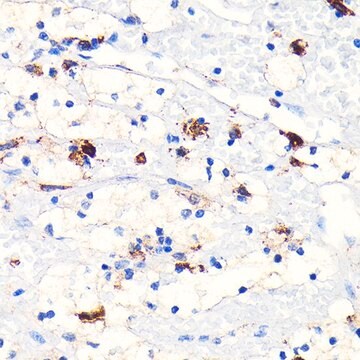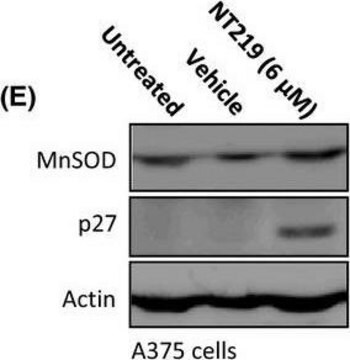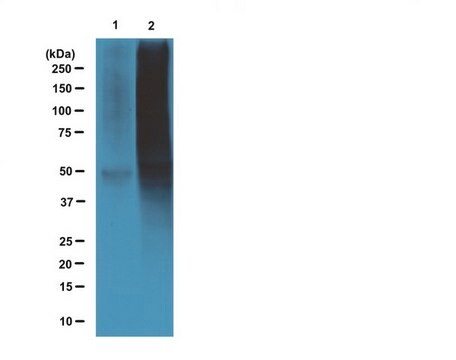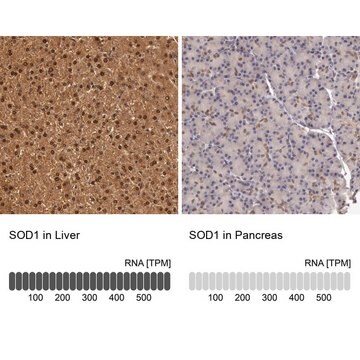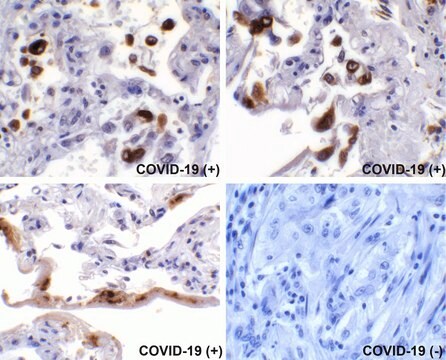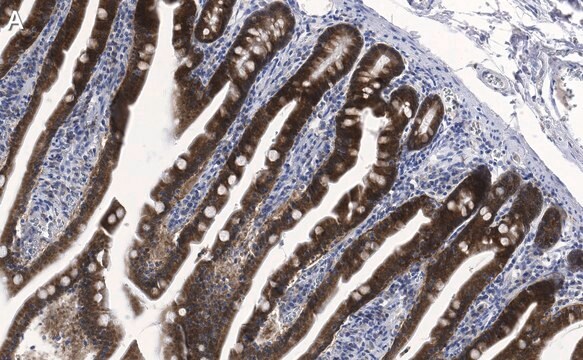MAB4081
Anti-MnSOD Antibody, clone MnS-1
clone MnS-1, Chemicon®, from mouse
Sinónimos:
MnSOD
About This Item
Productos recomendados
origen biológico
mouse
Nivel de calidad
forma del anticuerpo
purified immunoglobulin
tipo de anticuerpo
primary antibodies
clon
MnS-1, monoclonal
reactividad de especies
rat, rabbit, human
no debe reaccionar con
mouse
fabricante / nombre comercial
Chemicon®
técnicas
immunocytochemistry: suitable
immunohistochemistry: suitable
western blot: suitable
isotipo
IgG1
Nº de acceso NCBI
Nº de acceso UniProt
Condiciones de envío
wet ice
modificación del objetivo postraduccional
unmodified
Información sobre el gen
human ... SOD2(6648)
Especificidad
Aplicación
Immunocytochemistry on cell smears: 0.5-10 μg/mL.
Western blot: MnS1 antibody will recognize at 25kDa band under reducing conditions; this is the monomer of the MnSOD protein.
Optimal working dilutions must be determined by end user.
Neuroscience
Oxidative Stress
Forma física
Almacenamiento y estabilidad
Otras notas
Información legal
Cláusula de descargo de responsabilidad
¿No encuentra el producto adecuado?
Pruebe nuestro Herramienta de selección de productos.
Opcional
Código de clase de almacenamiento
12 - Non Combustible Liquids
Clase de riesgo para el agua (WGK)
WGK 2
Punto de inflamabilidad (°F)
Not applicable
Punto de inflamabilidad (°C)
Not applicable
Certificados de análisis (COA)
Busque Certificados de análisis (COA) introduciendo el número de lote del producto. Los números de lote se encuentran en la etiqueta del producto después de las palabras «Lot» o «Batch»
¿Ya tiene este producto?
Encuentre la documentación para los productos que ha comprado recientemente en la Biblioteca de documentos.
Nuestro equipo de científicos tiene experiencia en todas las áreas de investigación: Ciencias de la vida, Ciencia de los materiales, Síntesis química, Cromatografía, Analítica y muchas otras.
Póngase en contacto con el Servicio técnico